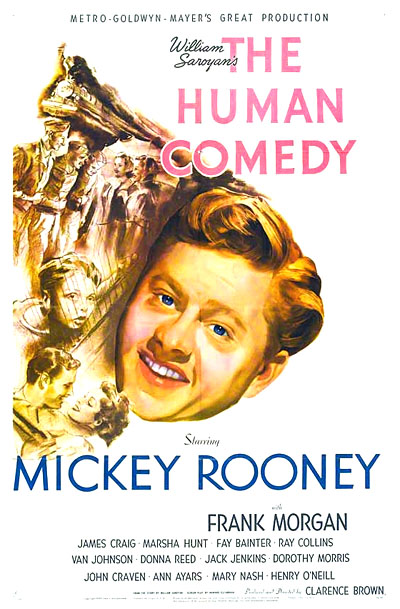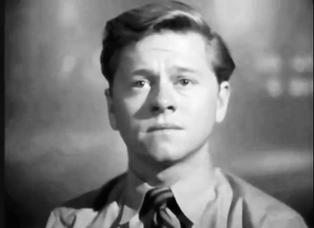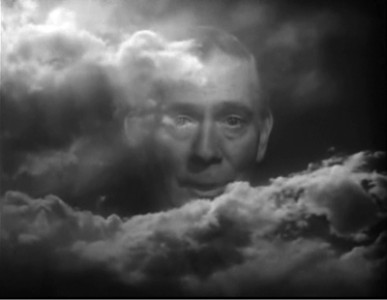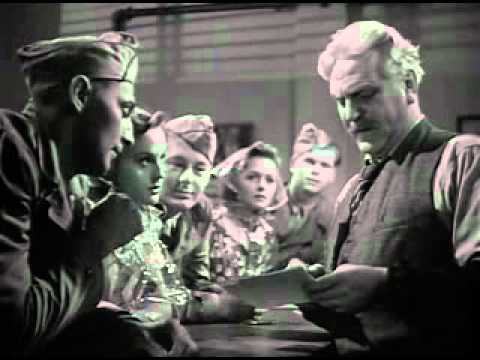
The 1943 film Whispering Footsteps opens with Mark Borne (John Hubbard) getting ready for his day. In his bedroom, at the boarding house where he lives, Mark turns on his radio and hears a news report of a double murder in a nearby town. Two girls have been strangled.
As the news report says that the killer has brown hair, Mark brushes his brown hair.
As the news report says that the killer has brown eyes, Mark looks at his brown eyes in the mirror.
As the news report says that the killer has a “lean, intelligent” face, the camera focuses on Mark’s lean, intelligent face.
Finally, as the news report says that the killer was wearing a gray, double-breasted suit, Mark puts on gray, double-breasted suit.
Yes, Mark looks just like the murderer and that quickly becomes a problem for him as he attempts to go about his day. When he walks to his job at the local bank, he notices that he’s being followed by a detective (Cy Kendall). When Mark later tries to take his lunch break, he again finds himself being followed. Desperate to escape from the detective, Mark steps into a bookstore and buys a random book. It’s only once he steps outside that Mark discovers that the title of the book is Psychology of the Homicidal.
Mark is a respectable member of the community but, because he looks like a serial killer, everyone in town soon starts to gossip about him. Why does he go for so many walks? Why does he sometimes seem to be in a bad mood? Could he be a murderer? Even the other residents of the boarding house start to view him with suspicion. Every time that she sees him, Rose Murphy (Juanita Quigley) screams.
Of course, Rose screams whenever anything happens. For instance, when she is shown a newspaper story about a local murder, Rose screams. Whenever anyone walks up behind her, Rose screams. Whenever anyone says hi to her, Rose screams. When a woman is found strangled in the basement, Rose screams again. Admittedly, it’s easy to get annoyed with Rose’s constant screaming but, in that last case, she’s probably justified.
Anyway, Mark only has one person on his side and that’s Brook (Rita Quigley), the daughter of his boss. And yet, at one point, Brook finds herself being chased through the night by a man in a double-breasted suit. Is Mark guilty or does he just have the worst luck in the world?
If nothing else, Whispering Footsteps will keep you guessing. Up until the last minute of the film, you’re never sure whether Mark is innocent or guilty. Who is the monster, the film asks. Is it Mark or is it the gossips who have decided to judge him? As convincingly played by John Hubbard, Mark starts out as upbeat and just a little bit shallow but, by the end of the movie, he’s become a haunted and paranoid man, embittered by the town’s refusal to believe in him. Charles Halton, as Mark’s self-righteous boss, and Rita Quigley provide good support. Less successful are some awkward attempts at humor. It won’t take you long to get tired of Rose screaming.
Clocking in at 52 minutes, Whispering Footsteps was obviously meant to be the second part of a double feature. It’s a well-done examination of guilt, innocence, and gossip. See it on a double bill with In A Lonely Place.



